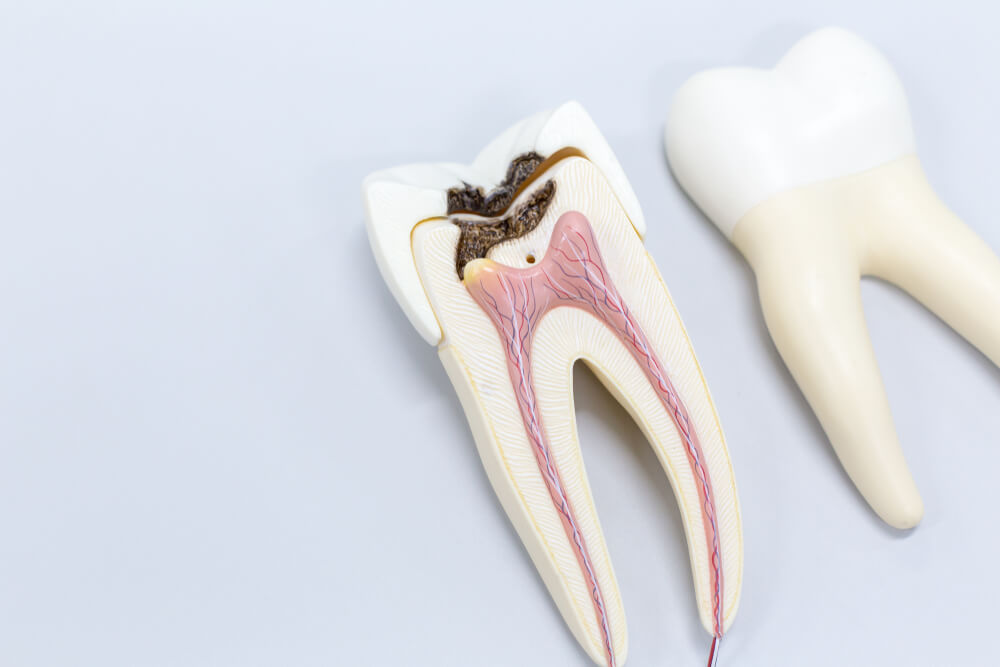In the past, if you had a tooth with a diseased nerve, you’d probably lose that tooth. Today, with a special dental procedure called “root canal treatment,” your tooth can be saved. When a tooth is cracked or has a deep cavity, bacteria can enter the pulp tissue and germs can cause an infection inside the tooth. If left untreated, an abscess may form. If the infected tissue is not removed, pain and swelling can result. This can not only injure your jawbones, but it is also detrimental to your overall health.
Root canal treatment involves one to three visits. During treatment, your general dentist or endodontist (a dentist who specializes in problems with the nerves of the teeth) removes the affected tissue. Next, the interior of the tooth will be cleaned and sealed. Finally, the tooth is filled with a dental composite. If your tooth has extensive decay, your doctor may suggest placing a crown to strengthen and protect the tooth from breaking. As long as you continue to care for your teeth and gums with regular brushing, flossing, and checkups, your restored tooth can last a lifetime.
With today’s techniques, a root canal typically doesn’t cause any more discomfort than a filling. Community Dental Care’s dentists are skilled at providing root canals with a minimum of discomfort.
Did you know…
that while most infected teeth are easily identified by the symptoms they cause, some produce no discomfort at all? It is important to visit your dentist regularly for routine exams that may reveal diseased teeth that would otherwise go unnoticed. Failure to treat an infected tooth could result in the death of the tooth and total loss. Worse, the infection can spread to other areas of the body, causing potentially life-threatening conditions.
Frequently Asked Questions
Do I need root canal treatment?
You may need a root canal if tooth decay or a broken tooth has allowed the pulp to become infected and inflamed. Signs and symptoms to watch out for include temperature sensitivity, swelling, drainage, odor, pain, and discoloration of the tooth. It is important to treat infections quickly, as delaying treatment can result in severe tooth pain and abscess.
What should I expect to happen during my root canal?
Your endodontist will numb your tooth with a local anesthetic and administer analgesia if needed. Once the tooth is numb, an opening will be made in the top of your tooth to access the canals. Your endodontist will use tiny instruments to remove pulp from your tooth and prepare it to be filled. You will return at a later date to have your root canal capped with a crown or other type of restoration that will give it the appearance and function of a natural tooth.
Will I need to follow any post-operative instructions following my root canal treatment?
You will be allowed to drive yourself home from your root canal visit and may even wish to return to work the same day. However, it is normal for your tooth to be sensitive in the days following your procedure. You’ll need to avoid biting anything with your filled tooth, as this can cause it to break or fracture. So long as the tooth heals normally and you experience no complications, you can return to your dentist within a month to have a crown or other restoration placed on the tooth.


